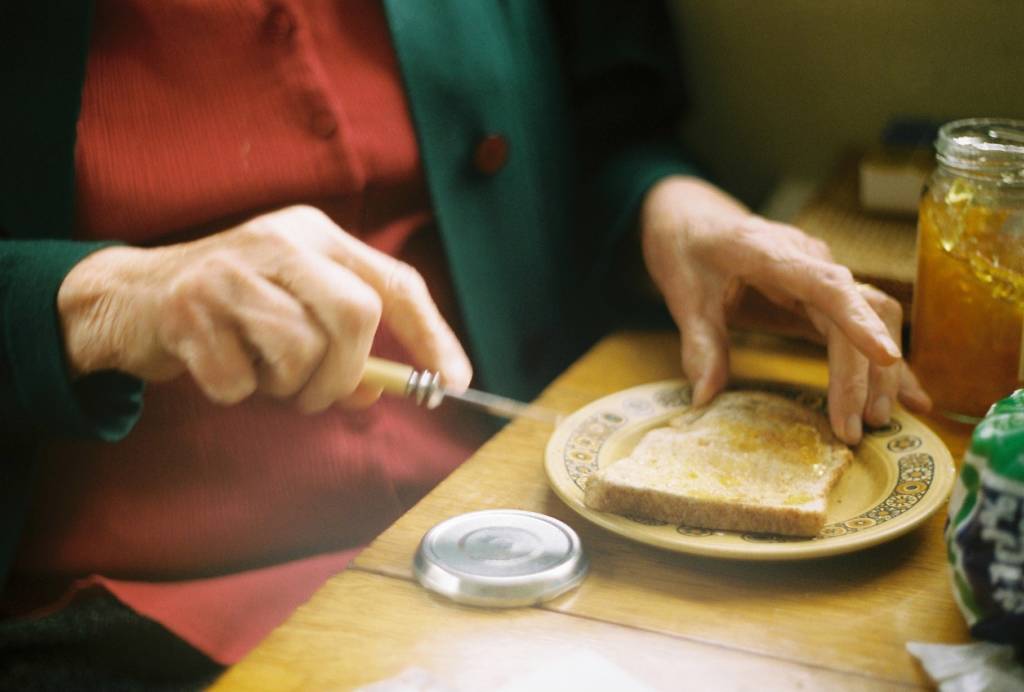In and around Washington, D.C., seniors are the most vulnerable to hunger. According to a report by Feeding America, which oversees hundreds of food banks nationwide, more than one in 12 seniors living in the city do not have reliable access to food needed for a healthy lifestyle.
“I usually eat one meal a day, maybe one meal a day and some peanuts,” said Preston L. Williams, a 67 year-old retiree. “On a good day, two meals when I have an appetite.” Williams is a former law enforcement officer with a master’s degree, struggling to pay his mortgage and medical bills.
Nearly one in seven seniors are identified as being marginally food-insecure, meaning they constantly face the threat of not having enough to eat. Between 2011 and 2012, the proportion of seniors threatened by hunger in D.C. rose 25 percent – a large increase compared to most states.
The Commodity Supplemental Food Program (CSFP), operated by Capital Area Food Bank, aims to help local seniors who are coping with hunger. CSFP has been providing monthly bags of healthy groceries to food-insecure seniors in Washington, D.C., since 2012. The food bank serves about 6,000 seniors annually through the CSFP, and hopes to grow its reach. The monthly grocery bags are packed with whole grains, healthy canned vegetables, fruits, protein, and dairy. Groceries are selected to
encourage and enable seniors to cook nutritious food from scratch.
Carolyn Vinson has participated in the program for years, and her experience has been “nothing but good.” According to Vinson, the best part of the program is that “it helps stretch your budget.”
As a cooking-based program, CSFP is geared toward seniors with permanent housing. Despite that fact, in 61 percent of the households served, residents have had to choose between spending money on either housing or food in the past year. Stretching seniors’ budgets with CSFP means that seniors can maintain their housing without going hungry.
“When you have to spend your money on meds then that means food is gonna run short,” Vinson explained to AARP Radio. “Because you know you gonna buy medicine before you buy the food.”
Too many seniors are living under the federal poverty line. This year, in Washington, that income level for a single person living alone is $11,670 per year. According to AARP, people cut food to be able to pay bills, health insurance and rent. Older adults, with difficulty moving and high bills pitted against low income are also suffering from a lack of access to food near their homes. Moreover, many are afraid to ask for help.
The Capital Area Food Bank addresses this problem with Mobile Marketplaces: farmers market-style food distributions that occur once a month in several food-insecure neighborhoods throughout the District, Maryland and Virginia. The D.C. Office on Aging also provides group meals at wellness centers for anyone older than 60, with no income requirement.
“We’ve seen a large increase in magnitude in this issue,” Paula Reichel, director of the Capitol Area Food Bank’s D.C. region, said. “Since 2007—the start of the recession—the number of food insecure seniors has increased by 49 percent nationally while the number of seniors in the total population has doubled.”
Unfortunately for people like Wendy Brinkley in Maryland, CSFP does not reach beyond the Washington. When Brinkley, 62, was diagnosed with cancer, she had to stop working. With no income, she lost her car and almost lost her home.
“I’ve worked since the age of twelve and I always worked to take care of my kids,” Brinkley said. “I bought my own house and car. But some days I have to choose between foods and medicines.”
Brinkley was lucky to discover United Communities Against Poverty (UCAP) three years ago. Amongst other services, the 50 year-old center provides food for families or individuals who are facing hunger and malnutrition. The food is all donated. Every Tuesday and Thursday, supermarkets like Safeway and Giant provide non-perishable goods like cookies, bread or bagels. Two days before Thanksgiving, people came and picked-up their turkey, which was partially funded by the Redskins. For some occasions, such as Christmas, UCAP is able to deliver food directly to seniors’ homes. In 2012, the organization delivered 79 Thanksgiving baskets to seniors and assisted 100 food-insecure households.
UCAP has had a large impact on Brinkley’s life, and many others. But services are known only by word-of-mouth referral.
“Nobody has to be homeless or hungry in this country, but if nobody told them about the help…” Brinkley reflected.








